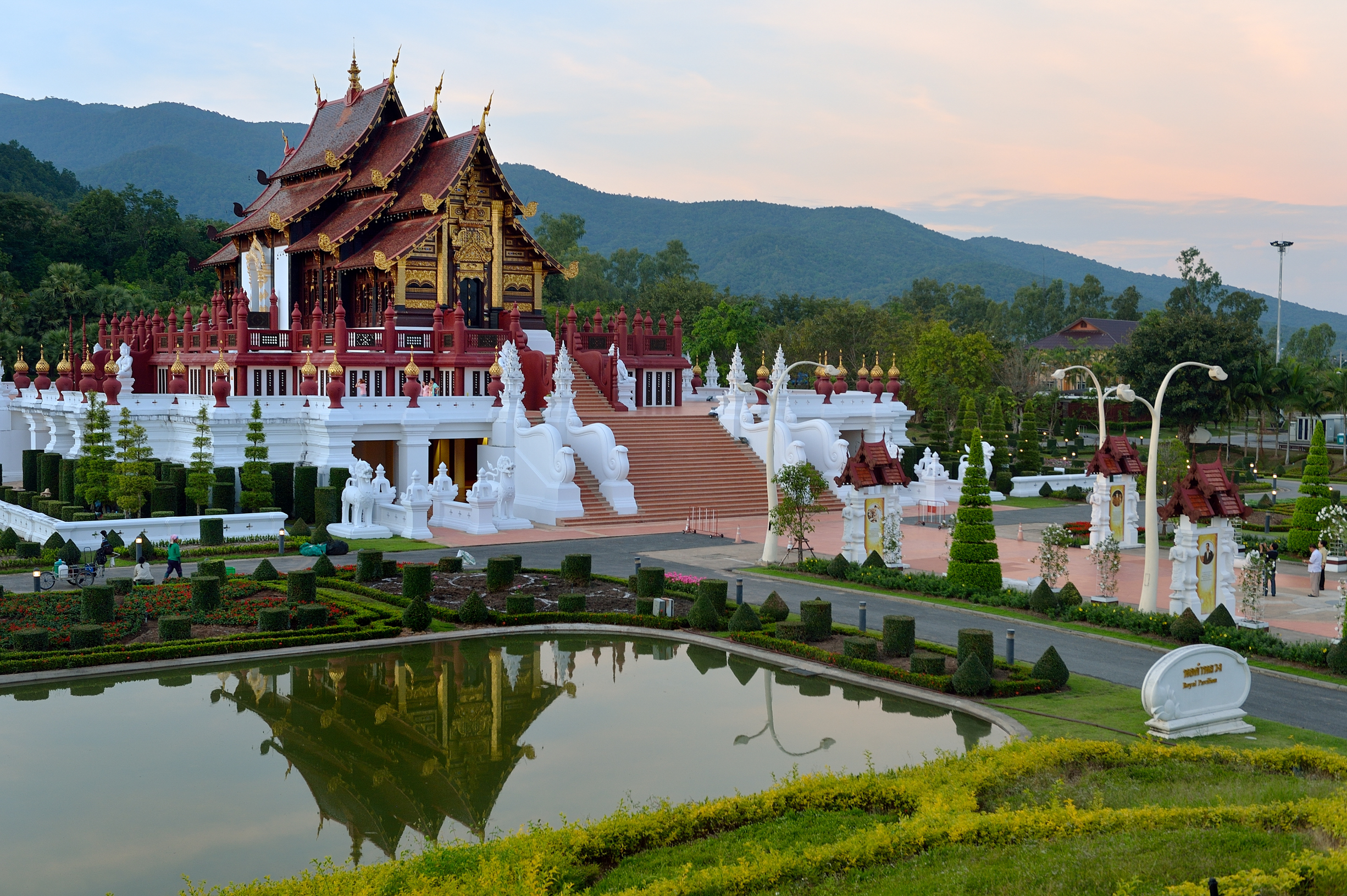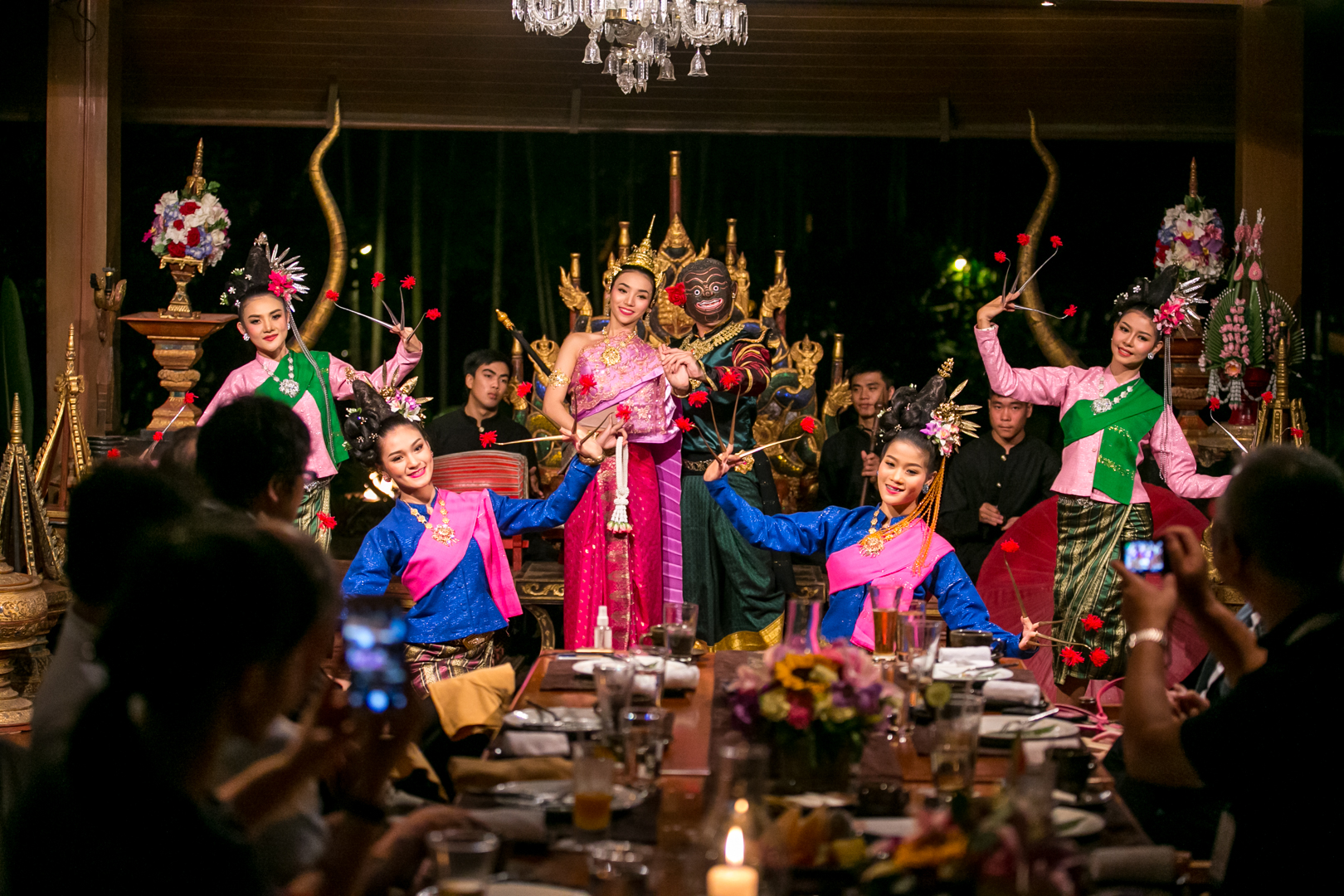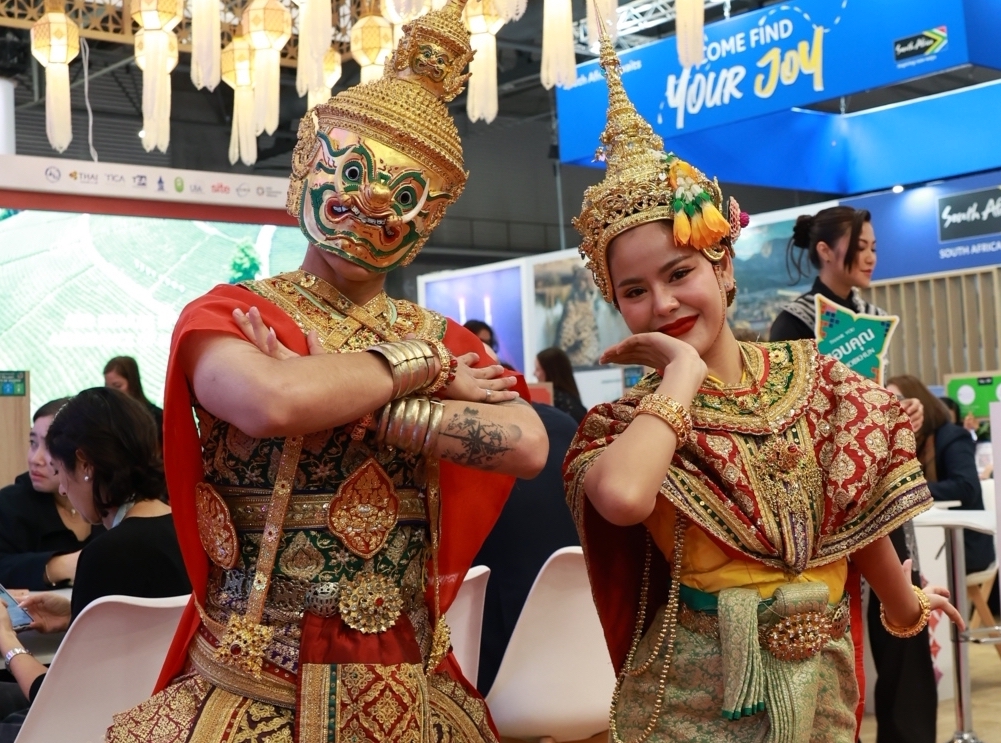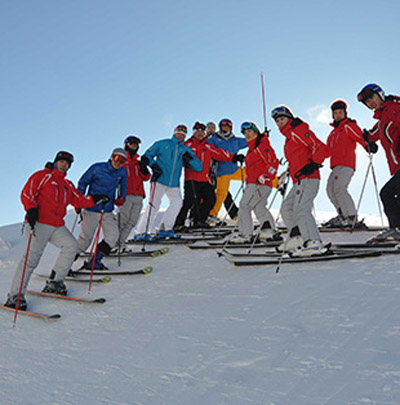
Mountain-biking down Olympic-level ski slopes, air-conditioned dining on a Great Wall watchtower, meetings in traditional courtyard buildings and a craft-ale tour of the hutongs are among the new options in fast-changing Beijing.
 The city is offering an increasingly adventurous mixture of alternatives, as well as allowing greater access to the big-ticket imperial venues, meaning incentive organisers with the right connections can have cocktail parties, or even dinners, in grand locations such as the National Museum of China, the world’s largest, the Forbidden City and on the Great Wall itself.
The city is offering an increasingly adventurous mixture of alternatives, as well as allowing greater access to the big-ticket imperial venues, meaning incentive organisers with the right connections can have cocktail parties, or even dinners, in grand locations such as the National Museum of China, the world’s largest, the Forbidden City and on the Great Wall itself.
There are also sporting options – hitherto not widely associated with China’s capital. With the city’s joint hosting of the Winter Olympics in 2022, with the nearby (and snow-blessed) city of Zhangjiakou, more and more ski resorts will be opening up, ready to host the world’s best practitioners. A new high-speed rail link, due to open in 2017, will put the mountain region of Hubei province within 40 minutes of the city – meaning winter skiing, or summer mountain biking options can be realistically added to a schedule.
A resort (with activities pictured above) operated by Malaysia’s Genting group is already up and running. The Secret Garden resort will ultimately have 82 ski runs, with mountain biking offered during the summer months; the new rail line will allow it to be included in future MICE plans for a day or even overnight excursion.
“It is not so well known that there are such adventure options available in and around Beijing,” says Joseph Sampermans, general manager of the Peninsula Beijing, which is undergoing a major renovation. “People could combine two or three days of meetings downtown then go skiing for a day in winter, or mountain biking in the summer months. There are even ski slopes within a 90-minute drive of Beijing, but the further you go, the better the snow.
Adventure zones
“There are other sports options here – ideal for teambuilding – I discovered through my kids! One of the suburban malls has a big hall with trampolines and wall climbing, a downtown park has a parkour-style adventure zone in the trees and there is also a go-karting track. You can organise activities in and around the hutongs (alleyways); one of the things we are thinking of is to have dragon boat racing on Houhai Lake, you can already go on a pedal boat and pedal across, that could also be a teambuilding exercise.”
The Peninsula, which recently revealed its totally remodelled lobby and began unveiling its hugely expanded rooms, is well rehearsed at holding events at the Great Wall, with a number of alternative locations, depending on how far the group is willing to travel. A recent Peninsula dinner for a Canadian company was held at a section near the Ju Yong Guan pass, where just ten guests enjoyed a gourmet dinner in an air-conditioned marquee.
A relaxation of regulations – and improvements in outdoor catering and storage equipment -– allows the planning of more ambitious, or larger-scale, catered events at the Wall. The Peninsula even provides white-uniformed staff, and telescopes for guests to enjoy the spectacular views.
The hotel itself, which will have 150 rooms when all are reopened, is across the street from the Waldorf-Astoria and will soon by joined by a Mandarin Oriental property. All the Wangfujing district hotels are within walking distance of Tiananmen Square – but a minimum 20-minute drive from the Central Business District, which remains a popular choice for planners.
The China World complex offers a one-stop-shop solution for planners of large gatherings, with its range of Shangri-La-managed accommodation options, including the China World Hotel, Traders Hotel, China World Summit Wing, Kerry Centre hotel and unmatchable conference facilities.
A more intimate alternative, in the same area, is Rosewood Beijing, the hotel group’s first China property. “Because we are relatively new, we are an interesting novelty for MICE planners,” says the hotel’s director of sales and marketing, Jade Woon. “Nowadays, events are all about being tailor made, it’s about getting personal, showing clients how much time, expertise and effort you are willing to invest to ensure you get as close to perfection as you can.
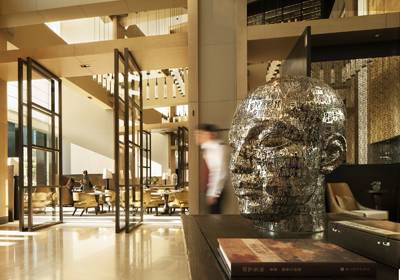
Heritage complex
Among the newcomers to the city’s MICE scene is the French outfit Châteauform. The company’s concept is well established in Europe, whereby meetings are hosted in characterful homes – mansions, farm cottages and castles – with an all-inclusive fee. The Beijing venue is in a heritage complex featuring a courtyard-style layout; no overnight accommodation is offered, but there are plans to open a larger venue near the Great Wall next summer that will offer 80 guest rooms.
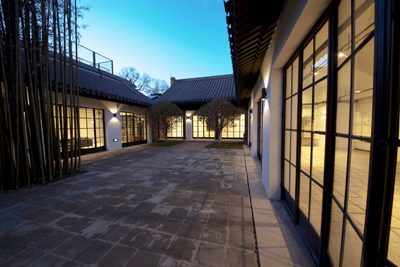
“We think China is now ready for this concept,” says Châteauform’s seminar adviser Capucine Jacquemain. “The venue is a courtyard which is inside a temple complex. All the nine meeting rooms surround the courtyard and we have a big area for dining and cocktails, so we could host up to 200 people. Packages are fully inclusive, so when you are inside the house it is all included, the fully equipped rooms and the food, breakfast lunch and dinner depending on the format of the seminar. The chef and food is important; you need to have healthy food, we work with organic suppliers fresh from the market… it is all home made.”
Another newly opened courtyard option, the Georg, is located in the older part of Beijing, close to the Drum and Bell Tower and next to a canal. It is a venture by Georg Jensen, designed to showcase the Danish lifestyle brand’s wares and offer fine dining Scandinavian cuisine, but it is also available for functions, dinners and meetings. Its largest gathering to date was a 160-person business dinner; there are three separate areas capable of seating between 30 and 100 people; in the past year, special menus have been created for functions hosted by fashion brands such as Ferragamo, Tods and Diptyque.
Another hutong-located venue, Copper, is a former nail factory that was converted to cater for high-end functions. Planners have the option of hiring a fleet of rickshaws or motorcycle sidecars for a whistle-stop tour of the nearby hutongs before arriving for cocktails, or dinner, at the venue itself.
Several of the city’s ever-expanding collection of craft-ale pubs are located in leafy hutongs, rough and ready lanes, where people live in courtyard style accommodation. They offer a fascinating look at pre-modernisation Beijing.
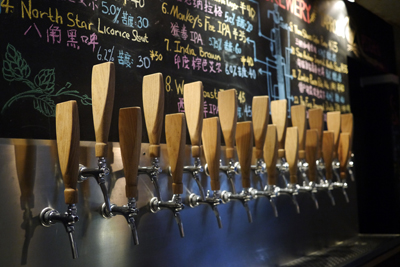
“I think everyone likes to come into the alleyways and courtyards of Beijing more than the malls,” says Chandler Jurinka, founder of Slowboat Brewery, which has an outlet in a hutong near the Lama Temple “The hutongs are an amazing part of the city, a way of looking at it from a different angle, the lure of Beijing is its culture and history. The Slowboat taproom is a bit of a secret in a way, somewhere that only locals would know and could show friends who came to visit, an insider place.”
Slowboat is about to open a new, three-storey venue in the heart of Sanlitun, close to yet another craft-ale spot, Jing A, and across the street from the new Intercontinental Beijing Sanlitun. The generally acknowledged godfather of the craft ale scene, Carl Seltzer, now has three Great Leap Brewing operations.
Smart equipment
At the other side of the city – in the west – is a cluster of financial-district hotels including The Ritz-Carlton Financial Street. According general manager Andrew Rogers, Beijing is really coming into its own as an international MICE destination because of its rich history, strong traditions and wide range of activities.
“After all, MICE and incentive groups select destinations to host their meetings in order to inspire their delegates, to increase sales and drive behaviour, and Beijing certainly is a destination that has the ability to be highly motivational for everyone,” he says.
Rogers adds that the hotel has just rolled out a digital check-in system for MICE groups that will save delegates more time.
“MICE planners today expect everything as wireless as possible and they hate waiting for the signals to come back. Smart equipment is not all you need for a successful meeting, but it is always a great starting point.”
In recent years, there has been one major downside to any Beijing visit: the risk of seeing the city through a blanket of smog. There are signs that government efforts to clean up the air are working as the first half of this year saw a significant increase in pollution-free days.
 Great Wall adventure
Great Wall adventure
The Châteauform concept – whereby a characterful building acts as a venue for a day, or more – has proved so popular with corporate groups that it will be expanded to include a Great Wall operation, this time with accommodation options.
Buoyed by the success of Châteauform Chuanshan Academy, located in a city suburb, the French company has located a second venue, also with a courtyard-style design, out by the most popular part of the Great Wall, at Badaling. It will have 80 rooms – and guests have to stroll just 1km to reach China’s most iconic structure.
“We started with the city venue so people could understand the concept, but now I think we are ready for a bigger venue, as well,” says seminar adviser Capucine Jacquemain. “We are dedicated to business seminars, every event linked with business and we are very flexible and really try to understand the needs of planners. We spend a lot of time before the seminar with the organiser to see what they need.”
Châteauform also operates as a one-stop-shop event and incentive organiser, working with local partners to arrange hotels, fix up tours and book conference and dining venues.
Time for a crafty half
A pub-crawl of the city’s ever-burgeoning range of craft-ale venues is among the offbeat tours organised by the Bespoke Travel Company.
Founder Sarah Keenlyside, a former journalist with a keen eye for the quirky, has enlisted the help of local beer aficionados to do a spot of serious arm-bending, sampling brews such as Monkey’s Fist, Honey Ma Gold, Workers Pale Ale and Airpocalypse Now (an extra-strength ale named in homage to the city’s notorious
air quality).
“Most of the best craft breweries in Beijing are hidden in the hutongs, making them tricky to find… so we’ll help you find the best ones,” says long-term resident Keenlyside. “What’s special about visiting these places with Bespoke are the people you tour the pubs with. Depending on your preference, you can spend the evening chewing the fat with a local Beijinger who has lived in the hutongs his entire life, or an American historian who will explain the stories behind some of the beer’s quirkier names, like the Tuhao Gold Pilsner, or the Hidden General.
“The best part is that you get to sample beers that make use of some of China’s quirkiest ingredients – from Sichuan peppercorns to watermelon.”
The generally small size of the craft-ale establishments means that groups are limited to a maximum of 20 participants.
Bespoke Travel Company
Tel: +86 106 4000133
bespoketravelcompany.com
Slowboat Brewery
Tel: +86 106 5385537
slowboatbrewery.com
Châteauform
Tel: +86 138 11693001
chateauform.com
Ritz-Carlton Beijing
Tel: +86 106 6016666
ritzcarlton.com/beijing
Peninsula Hotel
Tel: +86 106 5211815
the-peninsula-beijing.hotel-rn.com
Beijing Waldorf Astoria
Tel: +86 108 5208989
waldorfastoriahotels.com.cn/beijing
The Georg
Tel: +86 108 4085300
thegeorg.com/en/home
Rosewood Beijing
Tel: +86 106 5978888
rosewoodhotels.com/en/beijing
Secret Garden Resorts
Tel: +86 313 4788888
en.secretgardenresorts.com
Copper
Tel: +86 108 4002232
trb-copper.com
